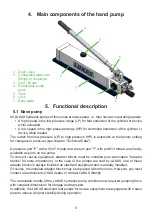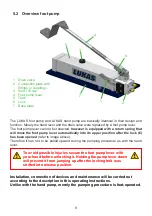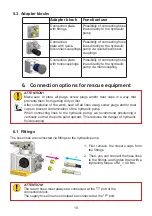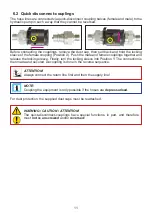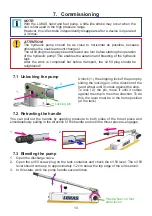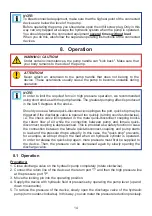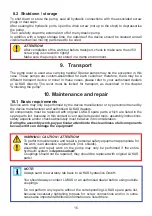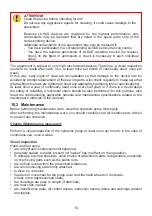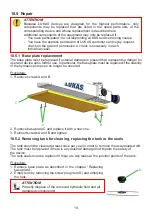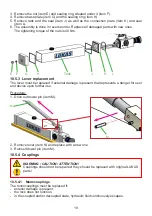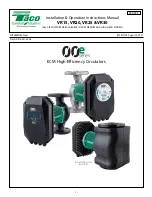
22
Device does not move
back into the starting
position, moves
incompletely back toward
the starting position or
moves more slowly into
the starting position than
normal.
Discharge valve closed
Open discharge valve.
Fluid level in the hydraulic
tank too high
Reduce hydraulic fluid
down to max. fill level.
Loose hydraulic coupling
Check all couplings and
retighten them.
Enclosed air in the system Bleed pump as described
in the chapter “Bleeding
the pump”.
Line length too long
Use shorter lines.
Use hydraulic fluid with
a different, more suitable
viscosity.
Defect on the device
Heed the specifications
of the separate operating
instructions of the
device.
Connected device not
reaching its limit position
Fluid level in the hydraulic
tank too low
Add hydraulic fluid up to
max. fill level.
Attention: move the
device back into the
base position before
adding fluid!
Usable hydraulic fluid
quantity of the pump is
insufficient
Use a different device with
a usable quantity below
the maximum usable
quantity of the pump.
Connected rescue device
does not achieve its
power-related performance
data
Max. permissible operating
pressure of the pump is
not reached
Replace pressure
control valve or have
it recalibrated by an
authorised dealer or
directly by LUKAS.
Fluid leaks on the
hydraulic fluid tank
(especially at the refill tap)
Due to return flow of the
hydraulic fluid from the
device, the maximum fill
quantity of the tank is
exceeded
Reduce hydraulic fluid
down to max. fill level.
Seals defective
Replace seal.
Hydraulic fluid with milky
cloudiness
Water or condensation
water in the system
Perform hydraulic fluid
change immediately.
Problem
Cause
Remedy
Summary of Contents for 81-50-35
Page 2: ...2...
Page 27: ...27 13 Notes...

